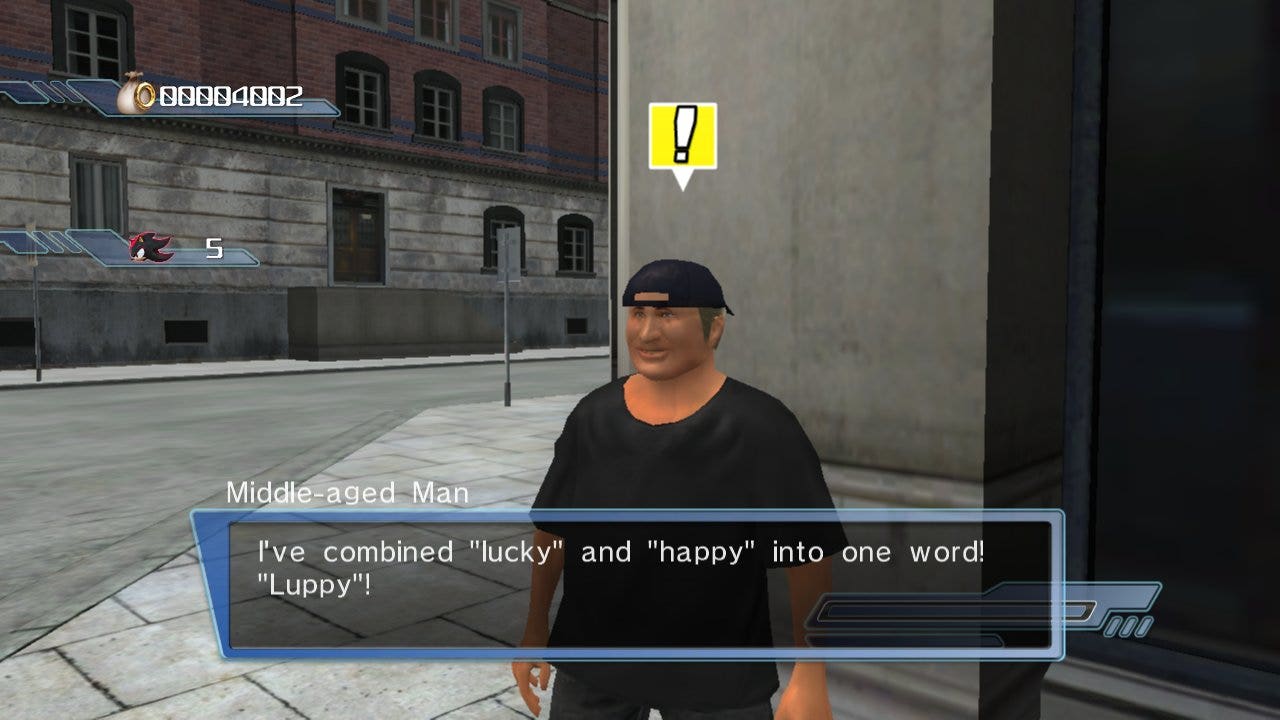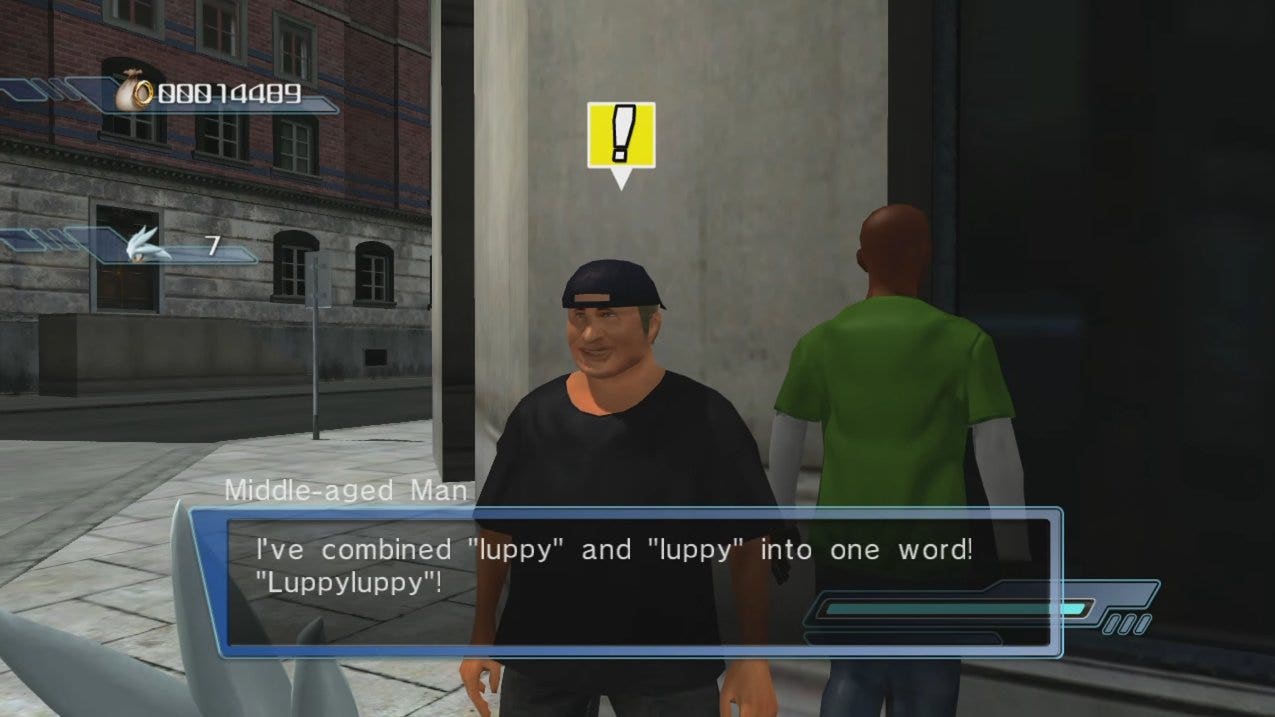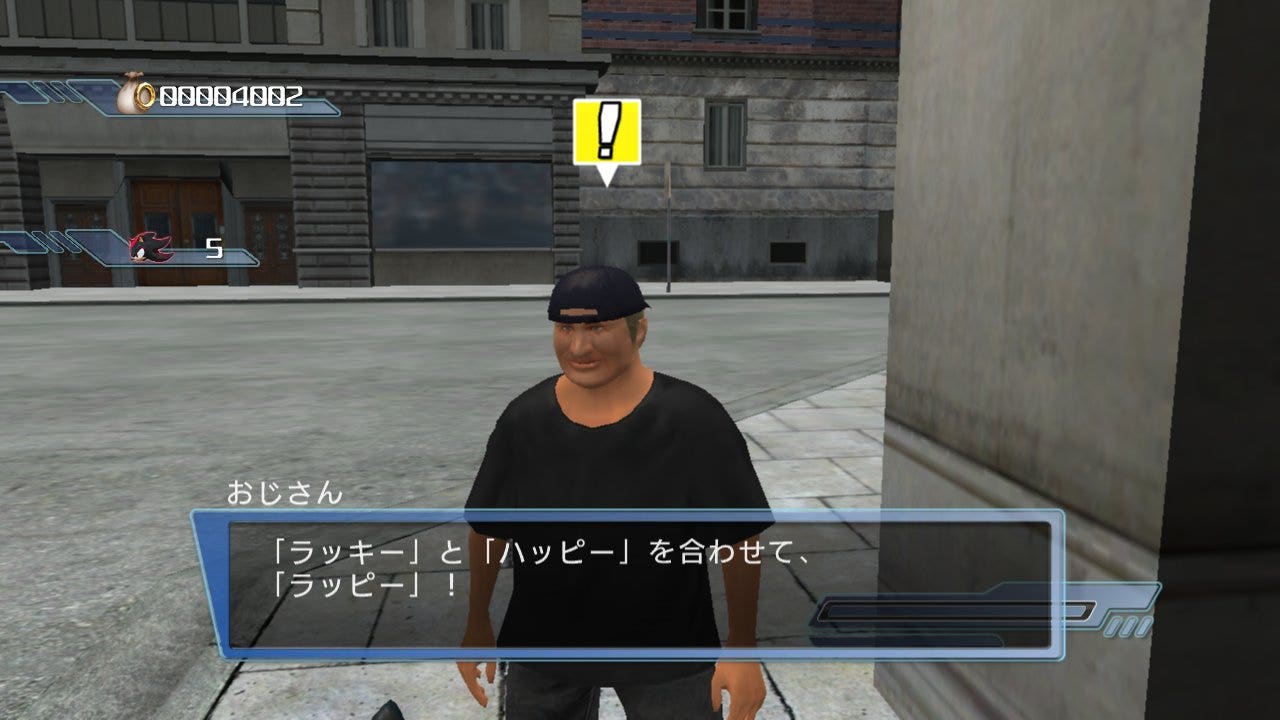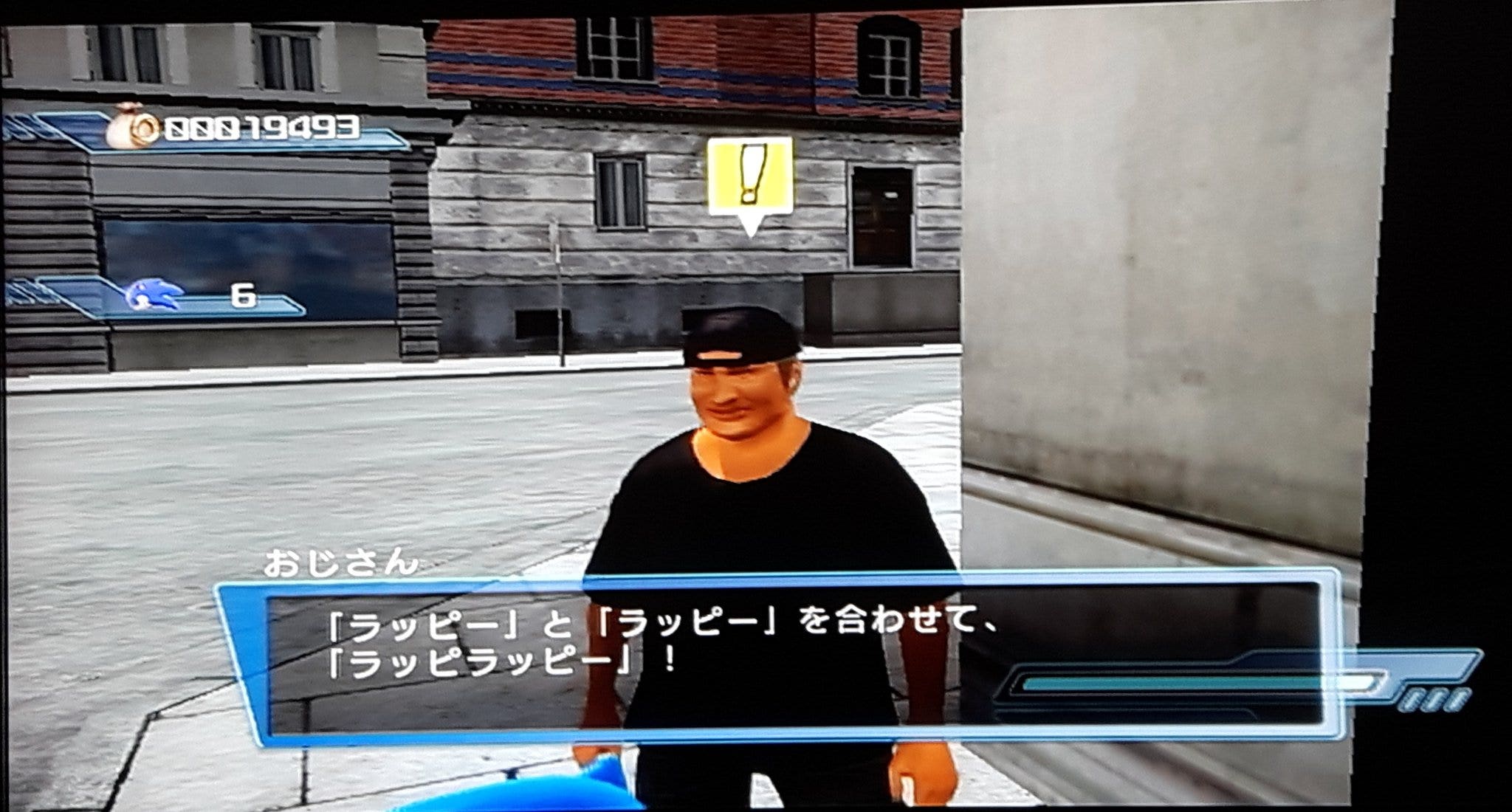Feeling luppy-go-luppy, or, what on earth did that guy mean in Sonic The Hedgehog (2006)
You may be familiar, even if merely by reputation, with Sonic the Hedgehog (2006), a colossal disaster of a game which has been much dissected over the years.
If you’re not familiar, you may have missed the true champion of Sonic 2006, Middle-aged Man:

This man has some degree of notoriety as a pure distillation of the baffling state of the game. Sure, the Havok-powered physics they were all too eager to implement are janky and seemingly bring the game’s performance level to unreasonable depths. Certainly, the level designs are unpolished, and the gimmicks feel rushed. Yes, the story kind of strings things together but not in a way that feels ultimately satisfactory.
But here, in the town of Soleanna, we have Middle-aged Man. And he is not interested in the struggles against existential threats to the very world he lives on. He is thinking about language. He is experimenting.
For my part, I always sort of gave this guy the benefit of the doubt. Surely, I thought to myself, surely this is just an awkward translation. Surely in Japanese this guy is making a better, clearer joke. Surely this is just the localisers trying their best. It can’t be helped.
Later in the game, he does it again. Not content to merge two existing English words, he’s now merging the word he made up with itself. “Luppyluppy” is born.

Maddening. Once more Middle-aged Man has confounded us. This sentence surely cannot be any more than a localiser struggling and giving up with whatever fit. Right?
Well, after wondering for this long I finally decided to look into it.
I have some bad news.

There it is, 「ラッピー」 is real. Luppyluppy is likewise directly brought over from the Japanese version:

this picture was much harder to find, shoutout to @dog for getting the goods 💜
The Japanese version doesn’t have some secret better joke. This is about as close to a literal translation as you can get. Luppy, 「ラッピー」 is exactly what the original writers intended. As is luppyluppy, or 「ラッピラッピー」.